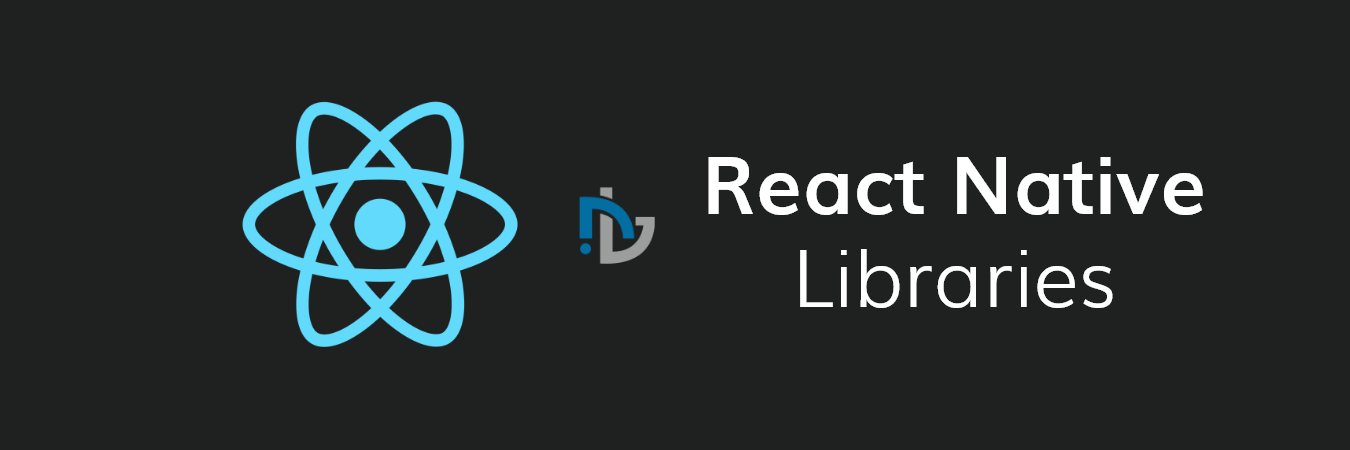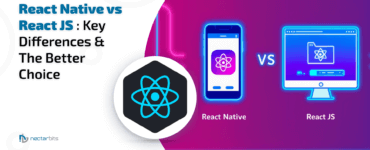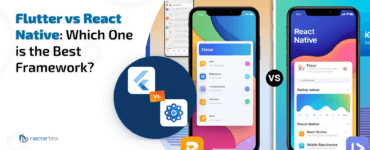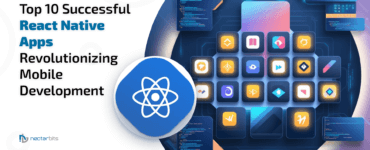This is in series to the last blog that we have published regarding the pros and cons of using React Native for mobile app development. We have concluded that despite having cons, the framework turns out as a power booster for various businesses which made them build or migrate the app to React Native technology.
The framework that’s accelerating app development and making engineering convenient for the developers, is due to the broad spectrum of libraries it has. Excited?
Let’s take a look at the React Native libraries that are making mobile app development a breeze for the developers.
Libraries for Type checking & linting
- ESLint: The library allows the developers to create linting rules and identify issues in JS code prior to its execution as they provide pluggable linting utility for JS coding.
- Flow: The static type checker automatically finds out the problems as the developers start coding to improve the code’s preciseness and its speed. Moreover, it prevents rebases when several developers work simultaneously on large projects.
- PropTypes: The library is essential for type checking code.
Libraries that seamlessly set up networking flow
- Apollo Client: The designers creating UI often use GraphQL, that’s where they need a tool to pull the data. The compatible Apollo Client tool is developed for the same.
- Axios: The HTTP client is developed to perform CRUD operations and send asynchronous HTTP requests to REST endpoints, which enable developers to write asynchronous code using async and await functions.
- React-native-firebase: The lightweight layer builds a JS bridge to simplify the use of Firebase with react native.
Libraries that make testing hassle-free
- Enzyme: The testing tool that supports static rendering and full DOM, it provides an API wrapper that makes asserting, traversing, and manipulating React DOM effortless. It’s used in conjunction with other testing libraries due to its high compatible nature.
- Jest: The unit testing framework is a versatile testing tool that can make any JS library bug-free.
- Chai: It’s an assertion testing library that leverages behavior-driven and test-driven development principles for browser and node.
- Mocha: The mature testing tool executes tests in series on browser and node. It offers async support, accurate reporting, JS API, and other things.
Libraries for best-in-class state management
- Redux: The library enables a new way of storing data, that’s select, update, and insert data in the database. Also, it facilitates editing in the live code.
- Redux-persists: The library, which is nicely structured and documented provides a structured and consistent way to persist in state.
Libraries making side effect management painless
Redux-thunk: The developers use this library when they work with asynchronous operations in Redux as it enables them to write action creators that return a function.
Redux-saga: The library allows developers to better manage, execute, and handle failures because of the app’s side effects.
Libraries making working with forms- a piece of cake
- Format: The library facilitates form building in React, and allow developers to obtain values from form state, validate, and submit forms.
- Redux-form: The library enables state management in Redux, and tracking common forms.
Libraries to create professional UIs
- Styled-components: For component styling, enables developers to write CSS code, and eliminate mapping between styles and components that makes using the component as low-level styling construct easier.
- Lottie-react-native: Parsing export animations and adobe after effects make the library worthwhile for creating animation effects in react project.
Libraries making navigation easy
- React Router: It’s packed with a range of navigational components that allow developers to specify named components and build various layouts.
- React Navigation: Based on JavaScript, the highly customizable library makes setting up app screens an easy task.
Libraries to implement the best analytical tools
- React-native-google-analytics-bridge: When you are thinking to use Google analytics tools, then this library works as a bridge to make the tools compatible with react projects.
- React-native-fabric: When the developers want to implement and work with analytics services such as Crashlytics, Fabric, and Answers, this library is very useful.
Libraries to better handle localization
React-Native-i18n: For app localization and internationalization, the i18n-js library leveraged which is integrated by the library in JavaScript for React Native projects.
Summing it up
Finally, you have the long list of React Native libraries beforehand that will make the React Native app development a breeze. It takes away heavy work from the shoulders of the developers that allows them to invest the time and efforts in a creative side which makes the app innovative. Use the ready-made solutions- React Native libraries in your project and let us know how beneficial they are in the comments below.









